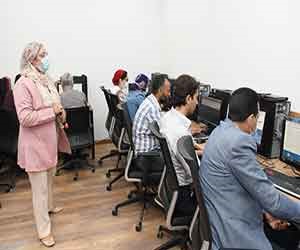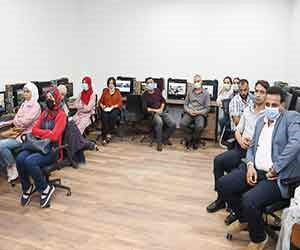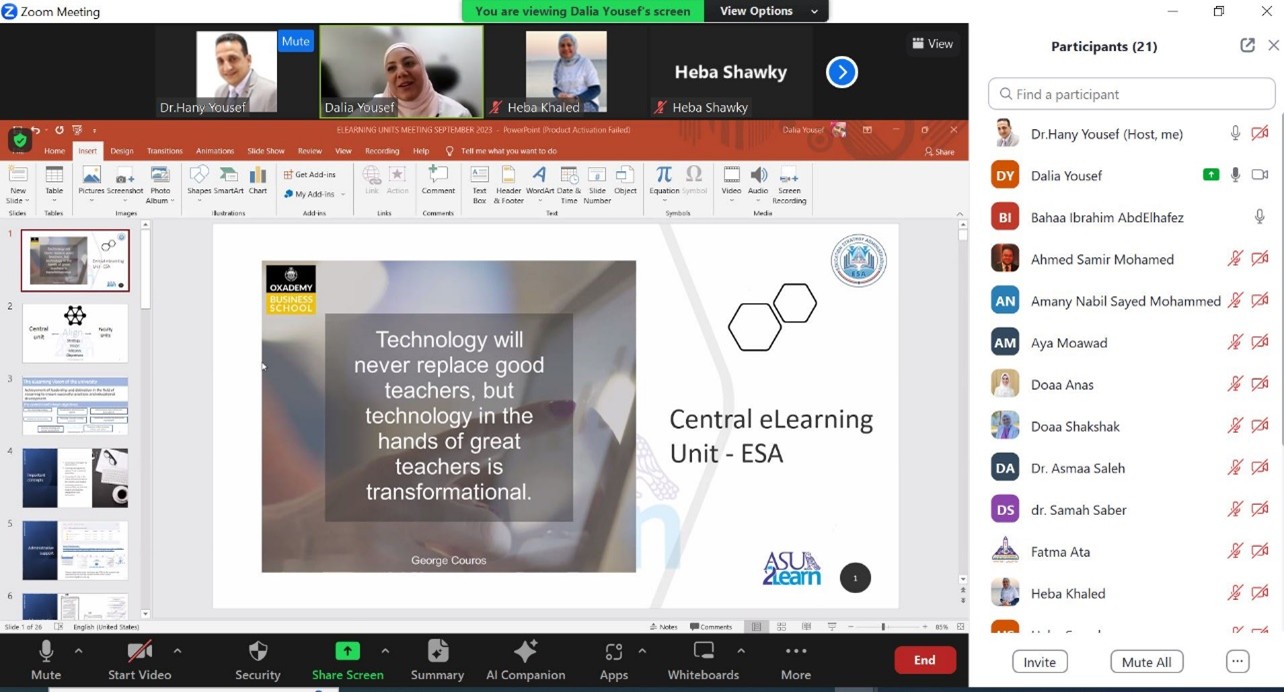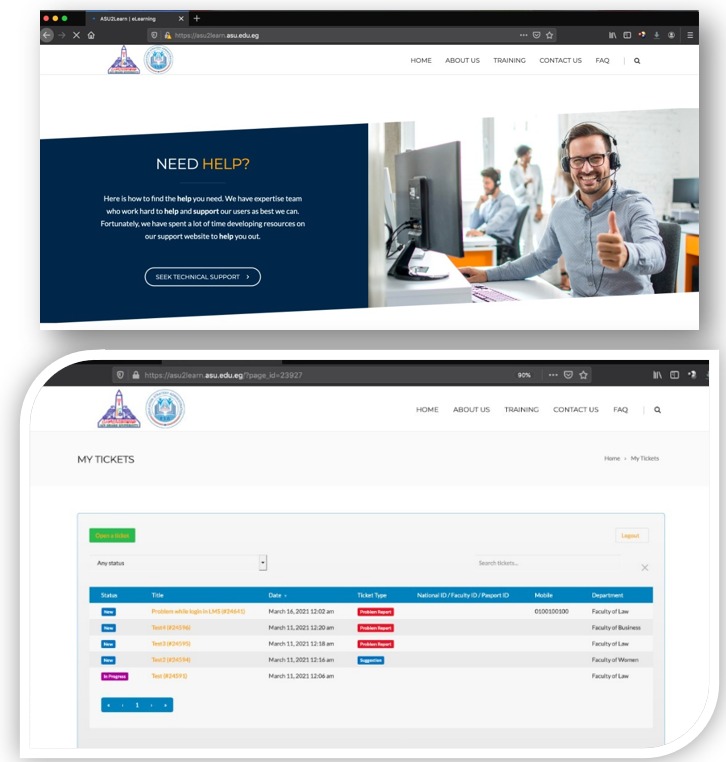The strategic plan for the Unit was developed in 2020 in line with the strategic plan for the Department of Education Development of the University of Ain Shams, to build and develop the curriculum system and teaching methods, and in line with the global and international trends and future positions required from the graduate of the University of Ain Shams. The Central e-Learning Unit is primarily responsible for a range of activities such as:
Availability of a well-trained technical team in the e-learning units is the main guarantee for achieving the digital transformation and providing an effective and creative electronic learning environment within the institution. This technical team is specialized in managing and operating the LMS and overcoming the technical issues that staff and students may face while using the e-learning platforms.
One of our main goals is improving the skills of the technical teams, through:
1. Preparing and applying specialized questionnaires to identify the training needs of the technical teams of the e-learning units, then analyzing the results of these questionnaires to design tailored training programs that fit these training needs.
2. Providing tailored training programs on the skills of managing and operating the LMS.
3. Providing technical support and overcoming the technical issues that may face the technical teams in faculties.
In this regard, 50 of the e-learning unit directors and team members in the faculties were trained on how to operate the updated interface of the e-learning system ASU2Learn, enabling them to independently manage the platform and perform the necessary maintenance.
 |
 |
Teacher plays a crucial role in implementing the e-learning through motivating students, engaging them into their learning progress. The teacher provides feedback, follows up on students’ performance and provides the necessary electronic tests on time, and is concerned with preparing an active learning environment rich in activities. From this point of view, we care about refining and developing the technological skills of faculty members enabling them to build high quality E-courses in accordance with the international standards.
We aim to develop the technological skills of faculty members through:
1. Preparing and applying specialized questionnaires to identify the training needs of faculty members regarding e-learning skills, then analyzing the results of these questionnaires to design tailored training programs that fit these training needs.
2. Training faculty members and assisting staff on the skills of building electronic courses and dealing with e-learning platforms (Teacher Role).
3. Designing tailored training programs for training on interactive tools that the e-learning system is enriched with to keep pace with the latest developments in the field of e-learning.
4. Providing appropriate tutorials and handouts to help the trainees to apply the acquired skills.
In this regard, more than 6000 of faculty members and assisting staff were trained on the skills of building electronic courses, interactive tools and dealing with e-learning platforms

Also, a group of professional tutorials was prepared. This group of tutorials aims at enabling all staff members to effectively manage their course and engage with their students.
E-Learning is no longer an add-on feature for teaching methods, and it is a necessity. today’s learners want self-paced, relevant, mobile and personalized content that is achieved by eLearning. Through eLearning students receive the following privileges:
1. Students can access to the content with an unlimited number of recaps and refreshers.
2. Students access updated content with state of the art knowledge and most recent researches.
3. E-Learning is an ideal way to provide instant delivery of lessons to the learner.
4. E-Learning offers a high level of coverage with a high degree of consistency of message delivered to the targeted audiences.
5. E-Learning is cost-effective.
Therefore, we care about developing the technological skills of students enabling them to access and deal with their electronic course effectively.
In this regard, a group of professional tutorials was prepared. This group of tutorials aims at enabling registered students to easily navigate and access their faculty’s LMS page and courses.
An integrated system with simple and straightforward methods for answering questions and resolving issues efficiently and effectively. Any user, whether a faculty member or a student, can identify and specify his type of problem, and the college's technical support team handles it quickly upon receipt, giving assistance and direct communication if necessary. Faculty members and students can also view the current status of their current and historical problems.
